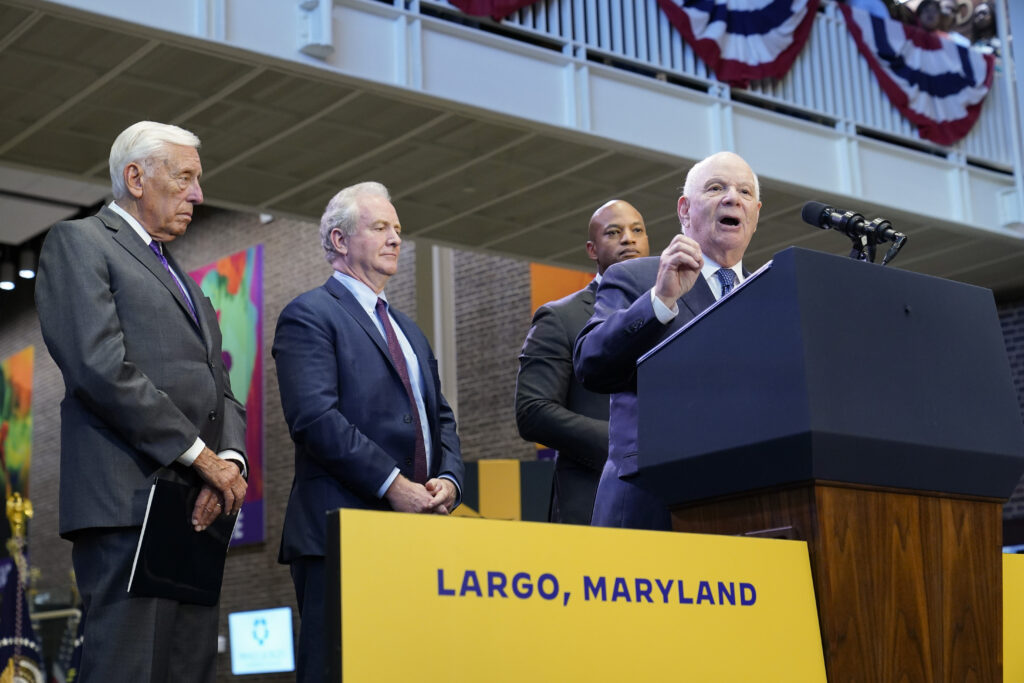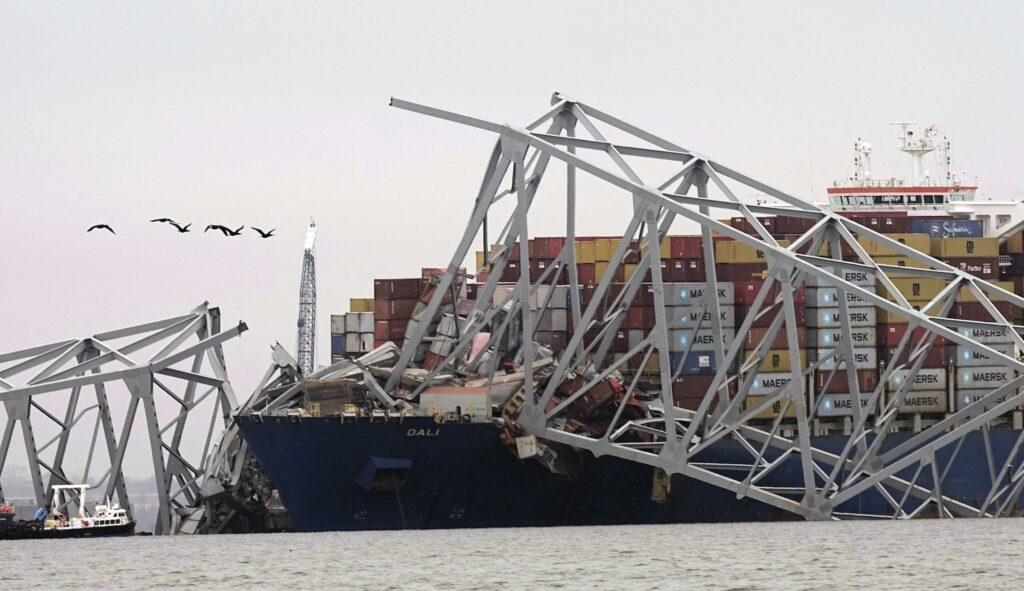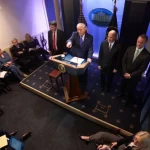
Members of Congress representing Maryland unveiled legislation to fund a replacement for the Francis Scott Key Bridge, which collapsed in Baltimore last month after being struck by a cargo ship.
Under the Baltimore BRIDGE Relief Act unveiled Thursday, the federal government would pay for the entire bridge replacement, something President Joe Biden promised in the wake of the tragedy. The legislation was introduced by Sens. Ben Cardin (D-MD) and Chris Van Hollen (D-MD) alongside other representatives in the House.

“The sudden collapse of the Francis Scott Key Bridge was a human tragedy and an economic tragedy – for Maryland and the nation. As we continue to mourn the loss of life and this icon of our skyline, we can simultaneously begin work to heal the wounds created by this disaster. A new bridge can be a symbol of hope and resilience,” Cardin said.
The federal government released $60 million in emergency relief funds after the collapse. It is currently unclear how much the recovery and rebuilding efforts will cost.

Rep. David Trone (D-MD) also urged members of Congress not to think of this as a Maryland issue but as an American issue.
“While we continue to mourn and recover from this tragedy, I strongly urge my Congressional colleagues to rise to the challenges ahead and help fund this effort because this isn’t a Maryland problem; it’s an American one. This legislation delivers the message that this critical infrastructure deserves our full support,” Trone said.
Cardin said he spoke with Republican members of Congress about supporting funding.
“This is a national issue. I believe we have strong bipartisan support for the traditional 100% reimbursements,” Cardin said. “In regards to replenishing funds, we’ve been able to do that on a bipartisan basis because every community in the nation is impacted by these funds that are in the Department of Transportation to deal with emergency situations.”
CLICK HERE TO READ MORE FROM THE WASHINGTON EXAMINER
In 2007, after the Interstate 35W Mississippi River Bridge bridge collapsed during rush hour in Minneapolis, its replacement was fully funded within five days. The Minnesota bridge collapsed on Aug. 1, and two days later, the House unanimously voted to spend $250 million for its replacement. By Aug. 6, the legislation had passed unanimously through the Senate and was signed into law by former President George W. Bush.
“The ability for us to have a collective and a bipartisan response to its rebuild is imperative,” Gov. Wes Moore (D-MD) said.







